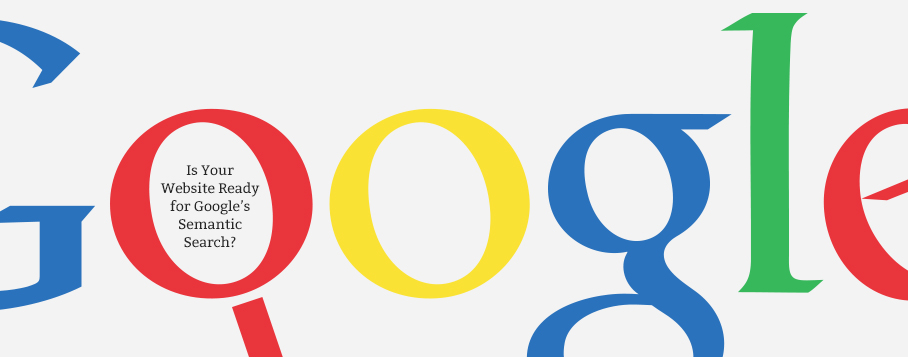
Google’s Search Makeover
In March 2012, Google announced through the Wall Street Journal that its algorithm and search results will be undergoing a makeover using semantic search technology. It is the biggest change in the company’s history and could affect millions of websites over the next few years.
Semantic search refers to the process of understanding the actual meaning of words. It can help associate different words with one another. Right now, Google is like a librarian that doesn’t know how to read the language in books. By implementing semantic search technology, it will have the ability to make thousands of associations with a word the way the human brain does. For instance, “Jaguar” could mean an animal or a car. So when you type a search query, the results won’t just be a list of blue web links. More relevant facts, information, and direct answers will appear at the top of the search results page.
Why the Makeover?
Google isn’t the first engine to use this functionality. You can already see how semantic search works with Bing and see how Artificial Intelligence search works with Apple’s Siri (which sends a quarter of its voice searches to Yelp and Wolfram Alpha). But Google is maintaining its 66% share of the internet search market by trying to stay ahead of Bing and Siri. Also, with social media claiming most of the internet user’s time, the new system would have them stay on the search site and its products longer.
These semantic search elements have been in the works for the past decade. Search Engine Land wrote an extensive article of how Google was already employing semantic search and direct answers as early as 2003. In 2010, it acquired Metaweb Technologies which had an index of 12 million entities such as movies, books, companies, and celebrities. Google then developed an extraction algorithm that quietly increased it to 200 million entities in the next two years. In addition, Google has obtained access to government databases including the CIA World Fact Book, which houses up-to-date encyclopedic information about countries worldwide.
How it Affects Your Website
Google has not officially stated what this new search means for users, website owners, and search ads. Only the fact that it could affect 10-20% of sites. But that doesn’t mean you should wait. Content development and marketing is going to be more important as these changes roll out.
A. More Time on Ads
Search ads generate the majority of Google’s $37 billion revenue. Google’s advertising executives are working independently on how this new algorithm will affect them. If the search engine better understands the meaning or intent behind people’s search queries, then Google could find a way to show them more relevant ads that match the search meaning as well as context, location, +1s, etc. There would also be more entities, which means more pages, which means more ad space.
B. Less Website Traffic
Your website may experience potential traffic drops since Google will be preventing users from clicking to your site as they provide direct answers on its search pages. If your website’s content answers the most basic queries, you may take a bigger hit in rankings. However, if Google doesn’t know the specific answer or doesn’t give enough information, you have an opportunity to provide it. Moreover, your website should focus on producing content that supports more complicated or complex searches.
Former Web-search executive at Yahoo, Larry Cornett, predicted that websites may need to change their “markup language” to be easily located under the new system. He suggests using some of the open standards from W3C Semantic Web and Schema.org that are recognized by the major search engines. To stay on top of semantic developments, you should also look at SemanticWeb.org. But rest assured, Google’s general webmaster guidelines will always apply.
C. Less Emphasis on SEO
The current keyword-based search and PageRank system will not be replaced by semantic search. They will be integrated to identify information about specific entities referenced rather than only looking for keywords. Semantic search will allow spiders to easily detect sites that have used tactics to have their poor content rise in search results. It’ll be harder for SEO to manipulate the system and easier for Google to have high quality results.
This also means that natural language will be used more in search queries. Synonyms, related topics and the overall surrounding content will have a bigger impact in your ranking. For example, having “jaguar” with the words “jungle” and “predator,” or with “engine” and “drive.”
More Human Optimization
The last major updates to Google’s algorithm was when it integrated user-based activities from Google+ and when it gave real-time results as a search query was being typed. Add in semantic search, it won’t have to do much statistical guesswork. This means that your content needs to talk to the reader and feel personalized so that they are more likely to connect with it. Making them generate an opinion will make them share your content, which will affect your ranking.
Semantic search aims to understand the web how humans understand the world. So pages will be ranked according to our guides of what’s relevant. Mindgruve’s approach has always been to write for humans first and if you already do, then you shouldn’t see a big effect on your rankings as opposed to content optimized for robots.
The Secret to Good Content
The most important thing to remember when you’re creating your content is that users expect answers on the web. People want to learn something new. Give it to them and you’ll be rewarded.